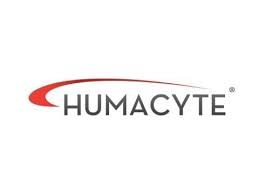Kymera Therapeutics (NASDAQ:KYMR – Get Free Report) and Humacyte (NASDAQ:HUMA – Get Free Report) are both small-cap medical companies, but which is the better business? We will contrast the two companies based on the strength of their dividends, analyst recommendations, earnings, institutional ownership, profitability, valuation and risk.
Analyst Ratings
This is a breakdown of current ratings and recommmendations for Kymera Therapeutics and Humacyte, as reported by MarketBeat.com.
| Sell Ratings | Hold Ratings | Buy Ratings | Strong Buy Ratings | Rating Score | |
| Kymera Therapeutics | 0 | 3 | 6 | 0 | 2.67 |
| Humacyte | 0 | 0 | 2 | 0 | 3.00 |
Kymera Therapeutics currently has a consensus price target of $47.50, suggesting a potential upside of 117.09%. Humacyte has a consensus price target of $7.75, suggesting a potential upside of 136.28%. Given Humacyte’s stronger consensus rating and higher probable upside, analysts plainly believe Humacyte is more favorable than Kymera Therapeutics.
Valuation and Earnings
| Gross Revenue | Price/Sales Ratio | Net Income | Earnings Per Share | Price/Earnings Ratio | |
| Kymera Therapeutics | $46.83 million | 25.84 | -$154.81 million | ($2.87) | -7.62 |
| Humacyte | $1.57 million | 215.87 | -$11.97 million | ($0.30) | -10.93 |
Humacyte has lower revenue, but higher earnings than Kymera Therapeutics. Humacyte is trading at a lower price-to-earnings ratio than Kymera Therapeutics, indicating that it is currently the more affordable of the two stocks.
Profitability
This table compares Kymera Therapeutics and Humacyte’s net margins, return on equity and return on assets.
| Net Margins | Return on Equity | Return on Assets | |
| Kymera Therapeutics | -340.80% | -34.15% | -26.74% |
| Humacyte | N/A | -76.90% | -41.12% |
Risk & Volatility
Kymera Therapeutics has a beta of 1.51, meaning that its share price is 51% more volatile than the S&P 500. Comparatively, Humacyte has a beta of 1.06, meaning that its share price is 6% more volatile than the S&P 500.
Institutional and Insider Ownership
13.1% of Humacyte shares are owned by institutional investors. 16.7% of Kymera Therapeutics shares are owned by company insiders. Comparatively, 23.1% of Humacyte shares are owned by company insiders. Strong institutional ownership is an indication that large money managers, hedge funds and endowments believe a stock is poised for long-term growth.
Summary
Humacyte beats Kymera Therapeutics on 8 of the 14 factors compared between the two stocks.
About Kymera Therapeutics
Kymera Therapeutics, Inc., a biopharmaceutical company, focuses on discovering and developing novel small molecule therapeutics that selectively degrade disease-causing proteins by harnessing the body's own natural protein degradation system. It engages in developing IRAK4 program, which is in Phase I clinical trial for the treatment of immunology-inflammation diseases, including hidradenitis suppurativa, atopic dermatitis, macrophage activation syndrome, general pustular psoriasis, and rheumatoid arthritis; IRAKIMiD program to treat MYD88-mutated diffuse large B cell lymphoma; STAT3 program for the treatment of hematologic malignancies and solid tumors, as well as autoimmune diseases and fibrosis; and MDM2 program to treat hematological malignancies and solid tumors. The company was incorporated in 2015 and is headquartered in Watertown, Massachusetts.
About Humacyte
 Humacyte, Inc. engages in the development and manufacture of off-the-shelf, implantable, and bioengineered human tissues for the treatment of diseases and conditions across a range of anatomic locations in multiple therapeutic areas. The company using its proprietary and scientific technology platform to engineer and manufacture human acellular vessels (HAVs). Its investigational HAVs are designed to be easily implanted into any patient without inducing a foreign body response or leading to immune rejection. The company is developing a portfolio of HAVs, which would target the vascular repair, reconstruction, and replacement market, including vascular trauma; arteriovenous access for hemodialysis; peripheral arterial disease; and coronary artery bypass grafting, as well as developing its HAVs for pediatric heart surgery and cellular therapy delivery, including pancreatic islet cell transplantation to treat Type 1 diabetes. The company was founded in 2004 and is headquartered in Durham, North Carolina.
Humacyte, Inc. engages in the development and manufacture of off-the-shelf, implantable, and bioengineered human tissues for the treatment of diseases and conditions across a range of anatomic locations in multiple therapeutic areas. The company using its proprietary and scientific technology platform to engineer and manufacture human acellular vessels (HAVs). Its investigational HAVs are designed to be easily implanted into any patient without inducing a foreign body response or leading to immune rejection. The company is developing a portfolio of HAVs, which would target the vascular repair, reconstruction, and replacement market, including vascular trauma; arteriovenous access for hemodialysis; peripheral arterial disease; and coronary artery bypass grafting, as well as developing its HAVs for pediatric heart surgery and cellular therapy delivery, including pancreatic islet cell transplantation to treat Type 1 diabetes. The company was founded in 2004 and is headquartered in Durham, North Carolina.
Receive News & Ratings for Kymera Therapeutics Daily - Enter your email address below to receive a concise daily summary of the latest news and analysts' ratings for Kymera Therapeutics and related companies with MarketBeat.com's FREE daily email newsletter.
